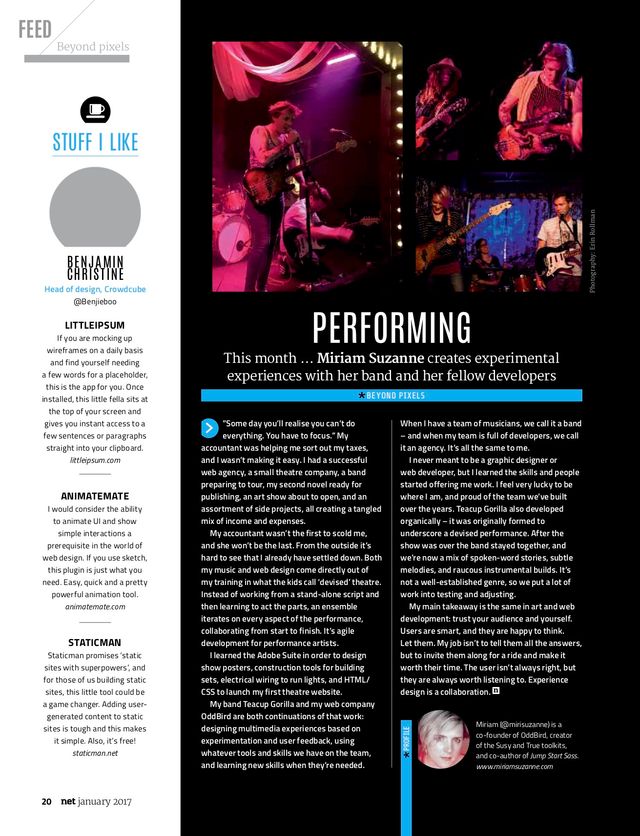“Some day you’ll realise you can’t do everything. You have to focus.”
My accountant was helping me sort out my taxes, and I wasn’t making it easy. I had a successful web agency, a small theatre company, a band preparing to tour, my second novel ready for publishing, an art show about to open, and an assortment of side projects – all creating a tangled mix of income and expenses.
My accountant wasn’t the first to scold me, and she won’t be the last. From the outside it’s hard to see that I already have settled down. Both my music and web design come directly out of my training in what the kids call ‘devised’ theatre. Instead of working from a stand-alone script and then learning to act the parts, an ensemble iterates on every aspect of the performance, collaborating from start to finish. It’s agile development for performance artists.
I learned the Adobe Suite in order to design show posters, construction tools for building sets, electrical wiring to run lights, and HTML/CSS to launch my first theatre website.
My band Teacup Gorilla and my web company OddBird are both continuations of that work: designing multimedia experiences based on experimentation and user feedback, using whatever tools and skills we have on the team, and learning new skills when they’re needed.
When I have a team of musicians, we call it a band – and when my team is full of developers, we call it an agency. It’s all the same to me.
I never meant to be a graphic designer or web developer, but I learned the skills and people started offering me work. I feel very lucky to be where I am, and proud of the team we’ve built over the years.
Teacup Gorilla also developed organically – it was originally formed to underscore a devised performance. After the show was over the band stayed together, and we’re now a mix of spoken-word stories, subtle melodies, and raucous instrumental builds. It’s not a well-established genre, so we put a lot of work into testing and adjusting.
My main takeaway is the same in art and web development: trust your audience and yourself. Users are smart, and they are happy to think. Let them. My job isn’t to give them all the answers, but to invite them along for a ride and make it worth their time. The user isn’t always right, but they are always worth listening to. Experience design is a collaboration.
